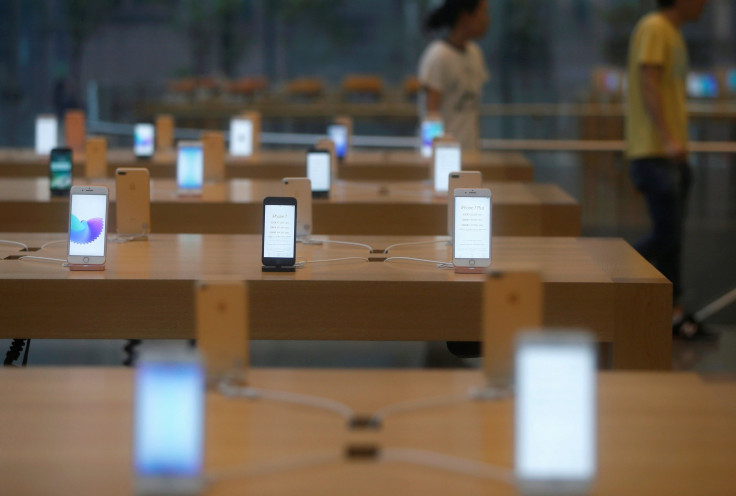Apple vs. Right To Repair: Tech Giant Planning To Contest Proposed Nebraska Legislation, Report Says

Apple is planning to oppose a “Right to Repair” legislation introduced last month in the Nebraska legislature, Motherboard reported Wednesday, citing an unnamed source within the legislature. The bill for the Fair Repair Act is aimed at ending the manufacturers’ aftermarket monopoly, wherein only authorized service providers are allowed to carry out repairs.
However, the right to repair movement, which has also gained cachet in the states of Minnesota, New York, Massachusetts, Kansas, Wyoming, Illinois and Tennessee — has faced vehement opposition not just from Apple, but also from tractor manufacturer John Deere. The company argued in 2015 that allowing people to tinker with their software — even if it’s for the purpose of repair — would “make it possible for pirates, third-party software developers, and less innovative competitors to free-ride off the creativity, unique expression and ingenuity of vehicle software designed by leading vehicle manufacturers.”
When the Nebraska bill is tabled for a hearing on March 9, Apple — which has successfully lobbied against similar bills in other states — is expected to argue, among other things, that allowing customers or independent mechanics to repair their own phones could cause the devices’ lithium-ion batteries to catch fire.
“They should want to give people as much information about how to deal with a hazardous thing as they can,” Gay Gordon-Byrne, executive director of Repair.org — the organization spearheading the right to repair movement, told Motherboard. “If they’re concerned about exploding batteries, put warning labels on them and tell consumers how to replace them safely.”
If enacted, the Nebraska bill — which does not apply to motor vehicle manufacturers and dealers — would force Apple and other electronic equipment manufactures to not only sell repair parts to consumers and independent repair shops, but to also make diagnostic and service manuals available to the public.
Currently, Apple only allows outlets like Apple stores and other businesses that need to pay the company a fee to become authorized to carry out repairs.
“Each original equipment manufacturer of equipment sold or used in this state shall make available for purchase by owners and independent repair providers all diagnostic repair tools incorporating the same diagnostic, repair, and remote communications capabilities that such original equipment manufacturer makes available to its own repair or engineering staff or any authorized repair provider,” the text of the LB67 bill reads.
The bill does not obligate an original equipment manufacturer to divulge a trade secret, or to provide parts that are no longer available.
“Any original equipment manufacturer found in violation of the Fair Repair Act shall be liable to a civil penalty of not more than five hundred dollars for each violation,” the bill reads.
Proponents of the right to repair movement argue that in addition to reducing the cost of repair, allowing consumers and independent technicians to repair their devices could tackle the growing problem of electronic waste (United Nations research shows that in 2014, about 41.8 million metric tons of e-waste was generated globally, of which only 6.5 million metric tons was recycled.)
As the argument goes, if consumers have the option to repair their electronic devices at a reasonable price, they would choose to do so instead of discarding it and buying a new one.
“It's possible to make repairable, long-lasting electronics, but if they did that it could hurt their future sales,” Kyle Wiens, CEO and co-founder of iFixit — a company that sells spare parts for consumer electronics and publishes free online guides — told CNBC in August. “They're putting us on a treadmill where we're forced to buy new gizmos every couple years, whether we want to or not.”
© Copyright IBTimes 2024. All rights reserved.












